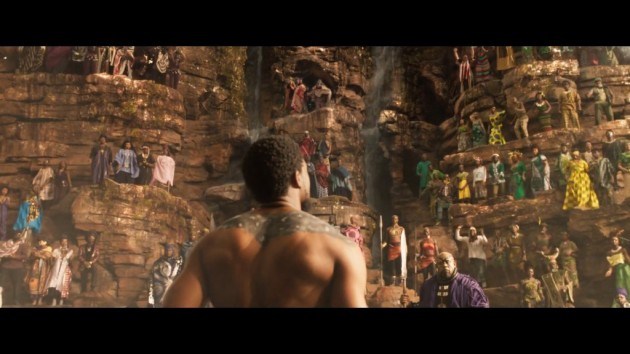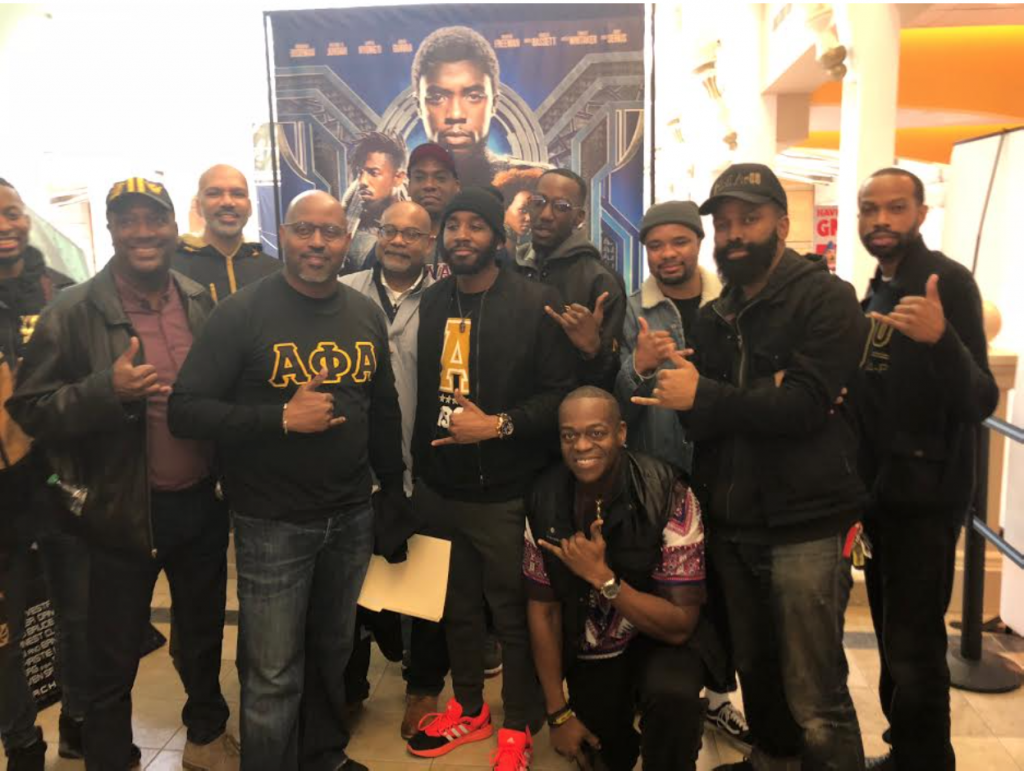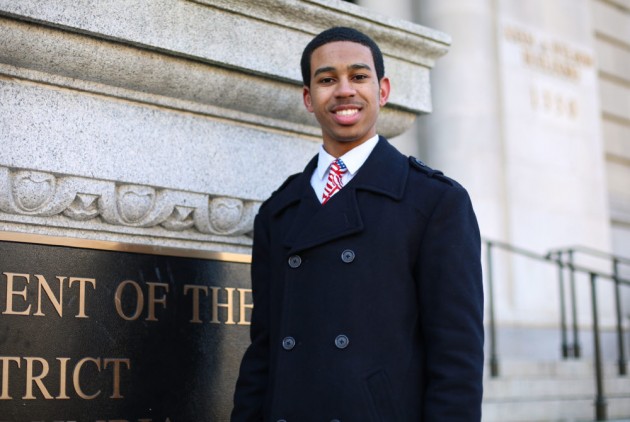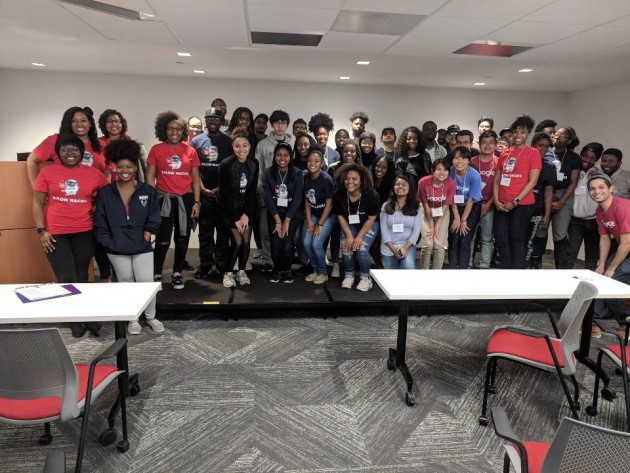Ryan Coogler’s Marvel film, Black Panther, takes place in the fictional, Afro-futuristic country of Wakanda, but maybe Wakanda is not fictional after all. Wakanda became technologically and medically advanced due to an abundance of a magical metal called vibranium.

A scene from Black Panther.
Although, vibranium does not actually exist, there are non fictional cities and countries in Africa with architecture, technology, and medicine that are just as advanced as the technology and medicine featured in the film.
Ngozi Bell, a federally appointed Advocate for the U.S Small Businesses Administration believes that the fictional country of Wakanda is a reflection of real African cities across the continent.
“The Wakandan way incorporated all aspects of them [Wakandan people] where technology was simply a means to provide for the well-being of the people,” Bell said.
Bell mentioned that African cities like Kigali, Rwanda, Gaborone, Botswana, Lagos, Nigeria, Abuja, Nigeria, Accra, Ghana, Nairobi, Kenya, Kampala, Uganda, and Dar Es Salaam, Tanzania all resemble Wakanda in that they have all become extremely technologically advanced in terms of architecture, medicine, and technology.
In 2016, the world’s first drone port was established in Rwanda. The drone port in Rwanda resembles the port featured in Black Panther, but it is used to deliver food, medical supplies, and blood for transfusions instead of vibranium. Forbes predicted that Uganda’s drone port will expand to Tanzania by the end of 2018.
In 2017, a Ugandan graduate, Brian Turyabagye, created his own version of the black panther suit in Wakanda. Turyabagye designed a biomedical smart jacket that is able to distinguish pneumonia symptoms – temperature, breathing rate and sound of the lungs – and eliminate most human error, diagnosing pneumonia at a rate three to four times faster than a doctor. Turyabagye named the jacket the “Mamaope”, or “Mother’s hope” jacket in reference to the 27,000 Ugandan children that die of pneumonia annually.
Bell believes that the fictional country of Wakanda will act as a platform for the exposure of nuances in technology and medicine in African cities across the continent.
“Countries like Uganda, Rwanda, Botswana were once regarded as death traps and today they are technology mavens but nuanced by the natural rhythm of their organic ecosystems,” Bell said. “They are not trying to be like France, UK, America or anywhere else, they cannot and should not…they are Rwanda, Uganda, Botswana etc. deploying tools for the wellbeing of their people.”
Bell also referenced a “hospital in a box” that resembles the surgical box and computer used in the fictional country of Wakanda to treat Agent Ross. In 2005, Nigerian doctor, Seyi Oyesola created a “hospital in a box” that had the ability to bring surgical care to every part of Africa. He wanted to prevent fatalities due to a lack of medical resources and basic medical equipment in rural parts of Africa.
Bell is also the creator of an online magazine, Diaspora Bell, that features the accomplishments and advancements of global members of the African diaspora.
Bell said that country of Wakanda helped to perpetuate the idea that African people are creative and constantly contribute to nuances in the fields of science technology, engineering and mathematics.
“Many Africans are already part of the creative class around the world…the paradigm shift is that they are now turning home, realizing that the time can never be perfect or right,” Bell said. “The only way to do is to "Just Do it".
Ariana Larte, a Ghanaian psychiatric clinician at the Howard Center in Burlington, Vermont believes that the fictional country of Wakanda depicted a very real narrative about African women in the fields of science, technology, engineering, and math. Larte felt inspired by Shuri (Letitia Wright), a female engineer in the city of Wakanda.
“African women in STEM fields aren’t usually represented in the media,” said Larte. “By featuring a powerful African, female, engineer in Wakanda, Black Panther gave visibility to all of the African women in STEM, and encouraged more black women to go into STEM.”
Although a study conducted by the UNESCO Institute for Statistics states that only 30% of professionals in the sciences in Sub-Saharan Africa are women, schools like Ghana’s All Nations University College are working to challenge those statistics.
“In our department we have more women applying than men and currently women make up about 70% of the entire students in the department and they perform better,” Mr Danquah-Amoah, who is also the patron of the National Society of Black Engineers (Ghana) in the school, said in an interview with Africanews’ Ismail Akwei.
Bryan Ashong, a Ghanaian biology major at Howard University agrees that Shuri’s position in the fictional country of Wakanda reflects a realistic increase in African women in the fields of science, technology, engineering, and mathematics.
“It was actually pretty realistic that the head of technology and engineering in Wakanda was an African woman,” said Ashong, “because African women are becoming more prominent in science fields. A lot of the women in my classes are African women and I’m not surprised at all.”
Bell believes that the similarities between Wakanda and real African countries will ultimately help to positively portray African countries in a more progressive light.
“Wakanda leapfrogs for Africans, from "the African world" as it is to the "African world" as it should be without the dramatics of "we are better than you,”’ Bell said, “and even when they [Wakandans] went to the United Nation to speak and offer up their technology for the service of all humanity and were asked "what they had to bring to the proverbial table", they did not jump in to boast or beat their chests in indignation about being subtly regarded as inferior and incapable of contributing in any serious way. They had made their case and at that moment it had to be enough!”






